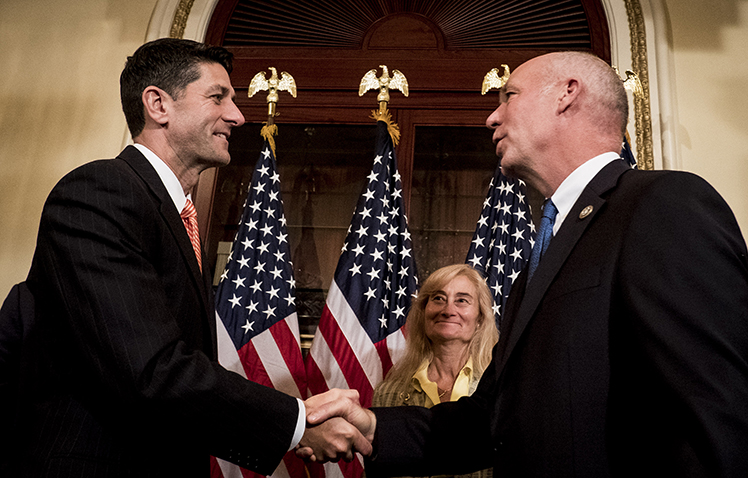When Montana Congressman Greg Gianforte agreed to donate $50,000 to CPJ as part of his settlement with Guardian journalist Ben Jacobs, whom he body slammed during a congressional race in May, I reached out to set up a meeting to see if Gianforte was serious about his hope that “some good can come of [the] events,” as he wrote in his apology to Jacobs.
At the end of August, Gianforte’s staff offered CPJ 15 minutes with the congressman, with the caveat that he might be called away, but would “make every effort to be available to attend.” We rescinded that request because it would not be possible to have a meaningful conversation in 15 minutes, but agreed to a later offer of 30 minutes with the congressman.
Only a few minutes into our October 5 meeting, a staffer came in to say that the congressman needed to go vote, which meant that it was left for Gianforte’s staff to hear what CPJ had to say.
In the seven minutes that we had with Gianforte–and in a follow-up letter sent today–we ran through our list of ideas about what the congressman could do to promote and protect press freedom in Congress, such as joining the bi-partisan Congressional Caucus for Freedom of the Press, or the Tom Lantos Human Rights Commission.
“Greg didn’t come here to join clubs,” the congressman’s chief-of-staff, Charles Robison, told us. The press freedom caucus–co-chaired by Rep. Adam Schiff (D-CA) and Rep. Steve Chabot (R-OH) and founded by Schiff and then-Rep. Mike Pence–helps bring congressional attention to cases of journalists threatened around the world. Last week, the caucus and the U.S. Helsinki Commission co-sponsored a briefing on attacks on journalists in Russia and other former Soviet states.
I was disappointed that we did not have time to have a meaningful conversation with Gianforte, and so was Jacobs. When I called him after the meeting, Jacobs said he was disappointed that the congressman “has yet again failed to live up to his past statements.” The journalist noted that he tried to interview the congressman, but was told that Gianforte would consent only to an off-the-record meeting. “I had expected that he was sincere in his expressions of support for a free press. Instead, he is continuing to behave like the worst stereotype of a Washington politician,” Jacobs said.
CPJ hopes that the congressman will speak out in support of press freedom and use the visibility of his office to raise his voice in support of journalists who are being jailed around the world in record numbers. Senator Marco Rubio (R-FL), for example, regularly devotes floor speeches to raising the cases of imprisoned journalists and human rights defenders, and Rep. Jim McGovern (D-MA) has met with our International Press Freedom Award winners and written letters on behalf of embattled journalists.
Groups such as the press freedom caucus and the Tom Lantos Commission represent serious bipartisan efforts to advance press freedom and human rights around the world, and are important amid the declining moral authority of the executive branch on these issues. In the wake of his assault on Jacobs, Gianforte’s participation would make a powerful statement that he is truly committed to defending journalists. We hope that the congressman will consider how his involvement in these groups could help reverse the wider tide of anti-press sentiments.
[Editor’s note: The fifth paragraph of this blog has been updated to correct the name of Charles Robison.]
